Behind the News
Behind the News: All the backstories to our major news this week
Published
7 months agoon
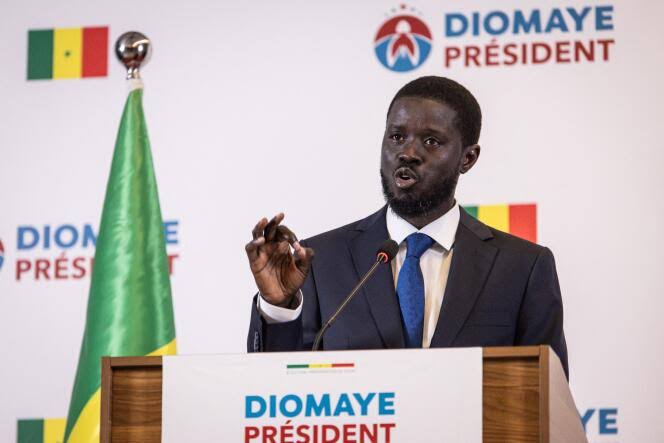
Over the past week, there were lots of important stories from around the African continent, and we served you some of the most topical ones.
Here is a rundown of the backstories to some of the biggest news in Africa that we covered during the week:
1. From prison to power: The inspiring story of Senegal’s youngest President, Bassirou Faye
Before he was announced the winner of Senegal’s presidential election on March 24, Bassirou Diomaye Faye, was another political prisoner who only released from prison a few days to the contentious poll that had to be held twice.
Despite the power of incumbency of sitting President Macky Sall and his efforts to buckle down on the opposition including one-time favourite, Ousmane Sonko who was accused of insurrection and disqualified from contesting in the election, the 44-year-old Faye dared all odds to secure 53.68% of the vote, while his close rival, Amadou Ba, the candidate for the ruling coalition, secured 36.2% of the vote to come a distant second.
Sonko’s disqualification had effectively paved the way for Faye with many Senegalese resolving to vote in new breed of politicians away from the usual recycled old heads that has come to be the bane of leadership in Africa.
Much of Faye’s success can also be attributed to the support of Sonko who enjoys high popularity, particularly among young people who promptly switched allegiance to Faye following Sonko’s disqualification.
So when the second round of elections took Center stage in the West African country, the electorates showed their discontent with the old order and decided to make Faye the youngest president in the country’s political history.
It was also a testament to the new reality of change and awareness that is gradually changing the face of politics in the continent with more younger people being voted into leadership positions.
The nationwide celebration that erupted in the country following the announcement of Faye’s victory by the Senegal Electoral Commission (SEC), also showed that a new dawn had come, not only for Senegal but for Africa in general.
The icing on the cake came following President Sall’s congratulatory message to Faye:
“I salute the smooth running of the presidential election of March 24, 2024, and congratulate the winner, Mr. Bassirou Diomaye Faye, who the trends show as the winner. It is the victory of Senegalese democracy,” the outgoing president had said.
2. ‘You can run, but you can’t hide,’ Tinubu tells killers of Nigerian soldiers
President Bola Tinubu was at his teether’s end on Wednesday, March 27 during the burial of the 17 military officers who were abducted and killed by gunmen while on a peace-keeping mission to the Okuama community in Delta State, and for the umpteenth time, vowed that the killers of the soldiers will be arrested and made to face the full weight of the law.
has once again reiterated that killers of 17 soldiers of the Nigerian Army in Delta State on March 14 will not go unpunished as he has mandated security agencies to go after them and make them pay for their crimes.
The visibly angry President Tinubu, while paying homage to the fallen soldiers during the burial at the National Cemetery in Abuja, assured their families, colleagues and Nigerians that those who perpetrated the dastardly attacks on the military personnel would be made to face the full weight of the law.
“They went as peacemakers and peacekeepers respectfully seeking to bring an end to the hostilities between the two communities,” President Tinubu said.
“They didn’t go with tanks, machine guns, or other weapons. They were on a mission of peace. They kept faith with their military calling until the end.
“The elders and chiefs of Okuoma also have a duty to help the military in fishing out the gunmen who committed the barbaric crime against our men.
“Those who committed this heinous crime will not go unpunished. We will find them, and our departed heroes will get justice,” Tinubu reiterated, not for the first time since the dastardly attacks on March 14.
But beyond the vows and zeal displayed by the Nigerian Army to fish out the killers of the gallant soldiers, many Nigerians are sceptical about the method being deployed.
There is a deja vu feeling of such encounters in the past where whole communities are brought down by soldiers out to avenge the killings of their colleagues by a few hot heads or militant groups.
It happened in Zangon Kataf in Kaduna State; the same scenario played out in Zaki Biam in Benue State; while the most devastating incident happened in Odi in Bayelsa State.
Will the Tinubu administration be able to curb the excesses of the Army with reports that they had already invaded the Okuama community in search of the killers who must have escaped into the creeks.
Nigerians are waiting with fingers crossed and bated breaths.
3. ‘Don’t rejoice too soon, you’d be disappointed,’ Zambian Alliance cautions citizens over debt restructuring deal
During the week in review, Zambian opposition coalition, the United Kwacha Alliance (UKA), threw spanners into the celebration of citizens who had welcomed a debt restructuring deal brokered by the President Hakainde Hichilema’s administration and the government claims that the country’s economy was picking up at the same time.
The Alliance, in a scathing statement on Thursday, said Zambians should not engage in premature celebrations because the Hichilema and the government was misleading the masses.
Before the attack on the deal, the government had announced that it had successfully brokered secured the debt restructuring deal with international bond holders and the Official Creditors Committee (OCC).
But the UKA, through its Media Chairperson, Saboi Imboela, urged the citizens not to jubilate just yet because, according to her, “the government was only exhibiting political desperation to show good results while hiding their bad governance.”
“President Hakainde Hichilema’s government’s debt restructuring celebrations are premature, a sign of political desperation meant to show intangible results while misleading the Zambian people,” she stated in the statement.
The UKA also challenged the government to acknowledge that the debt restructuring deal did not remove the burden of the Euro-bonds, except that they have been merely consolidated into two new ones – Bond A and Bond B in order to resume debt servicing.
“The Government is not fully disclosing its financial predicaments and weaker status for this process, as the terms of the Debt Restructuring Deal will negatively impact the Zambian economy and worsen the cost of living for the majority citizens,” Imboela said.
To the ordinary Zambian on the streets, the news that the government had secured such a debt restructuring deal would naturally be a thing of joy as it could trigger economic growth as well as curb the escalating inflation which has led to high cost of living.
But with the revelation by the UKA, now behoves on the government to employ it’s best public relations machinery to convince the people of its genuine intentions.
4. End of the road for Moroccan ‘Tinder Rapist’
The African adage which says that there are a hundred days for a thief but just one day of reckoning for the owner of the property, played out in grand style following the arrest of a Moroccan serial rapist who preyed on women on the online dating app, Tinder.
The accused, Salim Berrada, who is fondly called the “Tinder Rapist”, a 38-year-old Moroccan photographer, was arraigned at a French court on Friday on allegations of serial rape and sexual assault against 17 women spanning from 2014 to 2016 in France.
Prosecutors told the court that Berrada had, during the period, lured the women on the dating app to his photography studio where he would drug them and rape them thereafter.
They described a well-established pattern that began with contact through dating apps or social media, followed by a photoshoot in Berrada’s Paris studio, consumption of alcohol, suspicion of drugging, and non-consensual, often violent, sexual encounters.
According to French media, the “Tinder Rapist” case had drawn widespread attention because of its “chilling portrayal of alleged predation facilitated through the online dating platform.”
A French media outlet, BFMTV, in a report, said Berrada faces 20 years in prison if he is convicted of thirteen counts of rape and four counts of sexual assault.
“The trial has garnered significant attention, with the verdict expected on Friday. Berrada faces up to 20 years in prison if convicted of the charges against him,” BFMTV said.
In his defence, Berrada said:
“I have never drugged anyone. I have never had a modus operandi to rape anyone.
“There are people who slept with me to look good when they didn’t really want to. There are people who slept with me to get their photos and when they didn’t get the photos, they say they suffered abuse,” Berrada claimed.
Though he had denied all accusations levelled against him, it would be a big ask for Berrada to sweet talk his way out of the court.
5. Biafran dissident, Simon Ekpa dares Nigeria, declares President Tinubu, VP Shettima, govt officials wanted
In the same week under review, Finland-based Biafran dissident, Simon Ekpa, took his war against constituted authorities another notch when he declared Nigerian President Bola Tinubu, Vice President Kashim Shettima, and other top government and security officials wanted
over the insecurity situation in the South-East region of the country.
Ekpa who broke away from the Indigenous People of Biafra (IPOB), led by Nnamdi Kanu to set up a rival group known as IPOB-Auto Pilot before transitioning to become the self-styled Prime Minister of the Biafra Republic Government in-Exile (BRGIE), made the pronouncement two days after the Nigerian government declared wanted on account of terrorism
In a list he released on his verified X account, also declared wanted the governors of Imo, Anambra and Enugu States, Hope Uzodinma, Prof. Chukwuma Soludo and Peter Mbah, respectively, as sponsors of terrorism in the region.
“The above sponsors of terrorism, ethnic cleansing, killing and wanton destruction of lives and properties of Biafrans must be arrested anywhere you see them within Biafra territory,” he said.
Also included in Ekpa’s list were “all South East Senators and House of representatives members, except Chief Chinyelugo Imo, all GOCs of Nigeria within Biafra territory, and all CPs within Biafra territory.”
In the post on X, Ekpa stated that Tinubu, Shettima and the others on his listed are behind the insecurity in the South-East region and as such, are persona non-grata in the zone and should be arrested anytime they step foot in the region.
As funny as the declaration of the Nigerian officials may seem and a joke taken too far, many Nigerians believe it is time the government takes him seriously and activate diplomatic channels with Ekpa’s adopted country and bring him to book.
The reasoning is that he has some very gullible followers who take his orders hook, line and sinker and are willing to give their up their lives to satisfy his whims and caprice.
You may like
-


IMF recommends exporting African countries make crucial changes. Here’s why
-


African Union must ensure Sudan civilians are protected, By Joyce Banda
-


Nigeria considers US diaspora bond, seeks $1 billion monthly remittance
-


Nigeria to increase luxury VAT to 15%
-
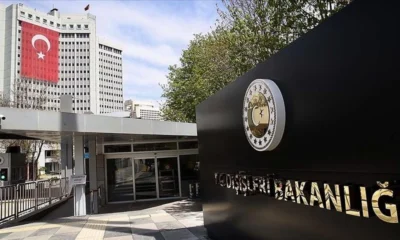

Turkey to pursue better African collaboration in Djibouti
-


Economic policies must be local, By Lekan Sote
Behind the News
Behind the News: All the backstories to our major news this week
Published
1 week agoon
October 18, 2024
Over the past week, many important stories from around the African continent were published, and we served you some of the most topical ones.
Here is a rundown of the backstories to some of the biggest news in Africa that we covered during the week:
Another look at Africa’s debt crisis
Conversations around Africa’s public debt were on the table during the week as Achim Steiner, administrator of the United Nations Development Programme, stated on Monday that the world’s poorest countries were unable to meet sustainable development targets because they had to prioritise debt payments over investments.
Addressing a gathering in Hamburg, Steiner asserted that the world financial crisis was impeding countries’ ability to accomplish the objectives, which include eradicating hunger and poverty, increasing access to healthcare and education, providing sustainable energy, and protecting biodiversity.
Since the COVID-19 pandemic’s pervasive effects on economies, the majority of the continent’s nations have suffered with both internal and international debt; yet, few have achieved much in the fight for debt restructuring under the G20 framework.
Numerous African nations, including Egypt, Tunisia, Nigeria, Ghana, Zambia, and others, are struggling with significant foreign debt. Together with Zambia and Ghana, Ethiopia will be a part of a thorough restructuring known as the “Common Framework.”
At the opening ceremony of the annual African Union summit in Ethiopia last year, UN Secretary-General Antonio Guterres made the case for changes to the international financial system’s structure to better meet the requirements of developing nations.
Africa’s whole external governmental debt as of 2021 was 726.55 billion USD. The amount of foreign public debt increased from 696.69 billion dollars in comparison to the previous year.
Concerns are being raised by the rising debt levels in Africa, which could not only hinder economic growth but also make repayment nearly difficult for many of these nations. This begs an important question: When does debt stop being beneficial and instead start to negatively impact a nation’s economic performance?
Kenya remains committed to Haiti, but what does it stand to gain?
Kenya will support an international anti-gang effort in Haiti next month by dispatching an additional 600 police officers there. Haiti’s prime minister was in Kenya to expedite the deployment of the military.
At least eleven countries have pledged to send more than 2,900 soldiers to participate in the Multinational Security Support (MSS), led by Kenya.
Kenya, whose participation in international peacekeeping missions is longstanding, declared earlier this year that it would be deploying 1,000 police personnel, citing as a starting point its assistance to a bordering country.
Approximately 600,000 individuals have been internally displaced due to gang conflict, and hundreds of thousands of aspiring migrants have been deported back to Haiti, where approximately 5 million people are facing extreme famine. October marks the end of the mission’s first 12-month term. As gang violence worsened in 2022, Haiti turned for the first time to foreign assistance.
Nevertheless, it failed to identify a leader prepared to assume the helm and numerous foreign governments were reluctant to back the unelected administration in the desperately poor nation.
Kenya gains significant political value by sending its troops to Haiti on the international scene. Kenya has gained international recognition as a trustworthy ally that is eager to assist other nations. The mission opens up various opportunities. Prior to deployment, Kenyan law enforcement forces will receive specialist training and equipment. In the long term, this will increase the force’s capacity. Of course, there are monetary rewards as the participating nations receive allocations of resources. Because troops will receive additional pay, officers are very interested in being deployed overseas.
Cameroon: ‘Healthy’ Biya remains out of sight
Cameroon’s president, Paul Biya can now be likened to the proverbial cat with nine lives as the 91-year-old has remained “healthy” following latest reports of his death during the week. Rumours have been circulating about Cameroonian President Paul Biya’s possible death in a military hospital in France due to his extended absence. This rumour stems from Biya’s prolonged absence following the September China-Africa Summit when he was anticipated to head back to Cameroon almost away.
As of November 6, 1982, Biya, who is 91 years old, has been in office for 42 years. He is the oldest head of state in Africa, the longest-lasting non-royal national leader worldwide, and the second-longest serving president overall. According to rumours, Biya’s oldest son Franck Emmanuel Biya may be named as his replacement for “continuity” in France.
Since its political independence from France and Britain in the early 1960s, Cameroon has only had two presidents. The country is currently dealing with two serious crises: a deadly Boko Haram insurgency in the north and a separatist conflict that has claimed thousands of lives.
President Biya is one of several long-serving African leaders, including Yoweri Museveni of Uganda, who has been in office since 1982, and Teodoro Obiang Nguema Mbasogo of Equatorial Guinea, Rwanda’s Paul Kagame is also gradually evolving into the group.
Things get tougher for embattled Kenyan Deputy President
During the week, the deputy president of Kenya was impeached by the National Assembly due to charges of corruption and abuse of power. In a vote held Tuesday night, lawmakers decisively decided to remove Rigathi Gachagua from office. The Senate will now decide what will happen to the deputy president.
Parliament adopted a proposal to remove Kenya’s deputy president from office, and on Wednesday, the matter was brought to the Senate for consideration. The National Assembly heard a nearly ninety-minute defence of troubled deputy president Rigathi Gachagua and his allies prior to the vote.
A surge of protests targeting President Ruto’s government has been occurring in Kenya over the last four months due to accusations of corruption made by certain lawmakers and government officials. High taxation and the parliament’s purported inability to act independently of the president were other issues that Kenyans objected to. Gachagua refutes the accusations made by certain lawmakers, who claim that the deputy president assisted in planning rallies against the government.
He supported Ruto in his election victory in 2022 and assisted in obtaining a sizable portion of the vote from the populated central Kenya region. Gachagua, however, has mentioned feeling marginalised in recent months, despite extensive claims in the local media that he and Ruto have strained political ties.
After widespread protests over unpopular tax increases in June and July that claimed more than 50 lives, Ruto sacked the majority of his cabinet and appointed members of the main opposition.
Gachagua infuriated many in Ruto’s coalition by comparing the government to a business and implying that people who supported the coalition had first claim to development projects and jobs in the public sector. Ruto has not yet publicly commented on the impeachment proceedings.
Behind the News
Behind the News: All the backstories to our major news this week
Published
3 weeks agoon
October 3, 2024
Over the past week, many important stories from around the African continent have been published, and we have served you some of the most topical ones.
Here is a rundown of the backstories of some of the biggest news in Africa that we covered during the week:
Musings on CBN rates across Africa: Ghana, Nigeria, and South Africa
During the week, many African countries announced monetary policy decisions. The Central Bank of Nigeria decided unanimously on Tuesday to raise its benchmark interest rate by an additional 50 basis points, to a new record high of 27.25%. This is the sixth hike in a row this year. The decision was made in an effort to reduce inflation, strengthen the naira, and draw in capital. Governor Olayemi Cardoso reaffirmed the bank’s commitment to controlling inflation and underlined how several rate hikes have contributed to its moderation.
Nigeria’s West Africa neighbour followed suit on Friday as the Bank of Ghana reduced its benchmark monetary policy rate by 200 points to 27% at a normal meeting. With inflation having slowed and disinflationary pressures mounting, this is the first decline in eight months and the steepest since March 2018. August 2024 saw a fifth consecutive month of decline in Ghana’s annual consumer inflation, which was still much higher than the central bank’s medium-term target range of 6% to 10%. The country’s annual inflation rate dropped to a nearly two-and-a-half-year low of 20.4% from 20.9% in July.
A week prior, as anticipated, the South African Reserve Bank decreased its benchmark interest rate by 25 basis points to 8% after holding seven consecutive meetings at a 15-year high of 8.25%. As price pressures decreased, the SARB is loosening policy for the first time since the epidemic in 2020
As monetary varying shifts across the continent continue, African nations are still facing numerous severe shocks and significant structural challenges, such as rising food and energy prices brought on by geopolitical tensions like Russia’s invasion of Ukraine, climate issues that impact agriculture and energy production, and ongoing political instability.
Africa’s real GDP growth slowed to 3.1% in 2023 from 4.1% in 2022 as a result of this difficult climate. With growth predicted to reach 3.7% in 2024 and 4.3% in 2025, the economic picture is projected to improve going ahead, underscoring the resilience of African countries.
Zambia and its post-drought plans
Zambia’s finance minister, Situmbeko Musokotwane stated on Friday that the nation intends to quickly recover from its worst drought in living memory and cut its budget deficit in half the following year.
The minister stated in a budget address that the copper producer hopes for a 6.6% growth in 2025, as opposed to a projected 2.3% increase in 2024. The country is aiming for a speedy recovery. as the government crop assessment data shows that over nine million people are affected in 84 of the 117 districts after suffering through the driest farming season in over forty years, which has led to considerable crop losses, an increase in livestock deaths, and worsening poverty,
Real GDP increased gradually between 2022 and 2023, from 5.2% to 5.8%. The supply side was driven by mining and quarrying, wholesale and retail commerce, and agriculture; the demand side was driven by consumer and business spending. Food prices, transit expenses, and the nominal exchange rate are the key drivers of inflation, which is expected to remain elevated and reach 11.0% and 10.9% at the end of 2022 and 2023, respectively.
The economic challenges faced by Zambia are exacerbated by the drought, especially when considering its debt load. Its debt restructuring talks under the G20 Common Framework have progressed far more slowly than was originally anticipated when the Common Framework was first proposed.
In 2017, Zambia was placed under debt distress, and as a result, non-concessional lending from multilateral development banks was discontinued. It’s possible that by overestimating sovereign risks, the main credit rating firms exacerbated the debt crisis and dealing with a post-drought crisis might just be another “too high hurdle”
As the World Bank and Uganda LGBTQ saga continues
The World Bank is taking more action in support of Uganda’s LGBTQ community. The global lender announced on Wednesday that it is implementing steps to guarantee that lenders to Uganda are not subjected to discrimination due to a severe anti-gay law. According to a World Bank representative, both new and continuing projects would be subject to the procedures, which also include an impartial monitoring system to guarantee compliance.
Same-sex partnerships are forbidden and punishable by life in prison; similarly, anyone convicted of “aggravated homosexuality” faces the death penalty. The Anti-Homosexuality Act (AHA) was passed by Uganda, a largely conservative nation, in May of last year and it has led to considerable Western censure and US penalties.
Other than Uganda, several African nations have strict laws that discriminate against individuals who identify as LGBTQ. Hakainde Hichilema, the president of Zambia, issued a warning in March to supporters of the LGBTQ movement to stop endorsing homosexuality. He also asked that Zambia “maintain laws that abhor alien orientations like gayism and lesbianism.”
South Africa, which has a constitution that forbids discrimination based on sexual orientation, was the first and only African nation to legalise same-sex marriage in 2006. Some African nations, such as Angola, Mozambique, Botswana, Lesotho, Mauritius, and Seychelles, have laws that are favourable to the continent’s population but Uganda appears to be unbothered or tempted despite the many causes and costs of its anti-gay stand.
Ahead of Tunisia’s presidential election
During the week, another Tunisian presidential candidate Ayachi Zammel was convicted and sentenced to six months imprisonment for using “fraudulent certificates” as opposition voices in the North African country continue on attack as President Saied positions himself for what is likely to be a reelection, as all but one of the opposition candidates are either incarcerated or have had their eligibility ruled invalid by the Tunisian electoral commission.
On September 19, a third candidate who had received the election commission’s approval was sentenced to 20 months in prison. Saied, who is currently running for reelection for a second five-year term, was originally elected in 2019 as an anti-establishment candidate who pledged to combat poverty and eradicate corruption. However, in 2021 he declared that he would rule by decree after overthrowing Mohamed Ennaceur and the elected parliament, a move denounced as a coup by the opposition and the international community.
Additionally, he has deployed more oppressive strategies, which may indicate that he is not confident in his ability to win with conviction. His severe actions could indicate a new stage in Tunisia’s democratic backsliding and foreshadow more crackdowns and turmoil during an inevitable second term.
Meanwhile, concerns exist over potential voting turnout as well. Under Saied, Tunisia has conducted three elections, with dismal voter turnout in each. Less than one-third of voters cast ballots in favour of a new constitution that solidified Saied’s power and overthrew the 2014 charter in July 2022. After Saied dismissed the previous legislature in December 2022, only 11% of voters cast ballots for new members of parliament, which is among the lowest turnout percentages ever recorded in a national election worldwide. The next December, Saied called elections for a new second house of parliament, repeating this dubious performance.
EDITOR’S PICK
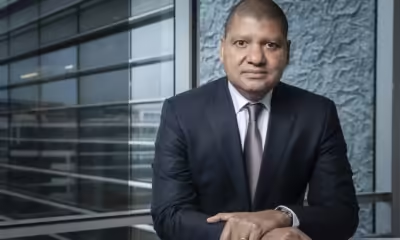

Ivory Coast: Ex-minister challenges ex-Credit Suisse boss Thiam for presidency
Jean-Louis Billon, the former commerce minister of Ivory Coast, announced on Friday that he would challenge party head and former...


Finance minister says reduced oil prices pressuring Angola
Angola’s finance minister has told journalists that falling oil prices put “lots of pressure” on the nation, predicting that prices...


IMF recommends exporting African countries make crucial changes. Here’s why
Abebe Aemro Selassie, director of the International Monetary Fund (IMF) Africa, has stated that countries in Sub-Saharan Africa that rely...


African Union must ensure Sudan civilians are protected, By Joyce Banda
The war in Sudan presents the world – and Africa – with a test. This far, we have scored miserably....


Nigeria considers US diaspora bond, seeks $1 billion monthly remittance
Nigeria is aiming for remittance inflows of $1 billion per month and is thinking of issuing a diaspora bond in...


Nigeria to increase luxury VAT to 15%
The Nigerian government would levy a 15% Value Added Tax (VAT) on luxury products, according to the Minister of...


Turkey to pursue better African collaboration in Djibouti
According to sources in his ministry, Turkey’s foreign minister will visit Djibouti next week to attend a ministerial conference between...


Mali claims Barrick Gold violated deal as miner disputes
Mali accused Barrick Gold of not upholding promises made in a recent agreement but the Canadian miner refuted the accusations...
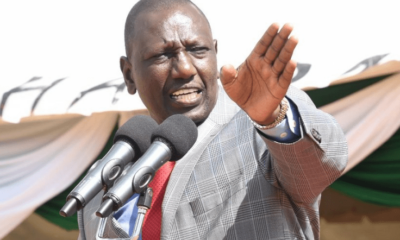

Video: Kenya’s Ruto targets inflation rate below 3%
In this video, Kenyan President, William Ruto, stressed the economic goals of his government and charged the public to believe...
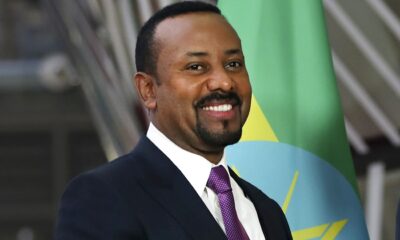

Ethiopian PM Abiy Ahmed meets Putin at BRICS, eyes stronger ties
Ethiopian Prime Minister Abiy Ahmed, who is representing a member country at his first BRIC summit, had a bilateral discussion...
Trending
-

 Politics2 days ago
Politics2 days agoSources suggest Sahel jihadis finding safety in Ghana
-
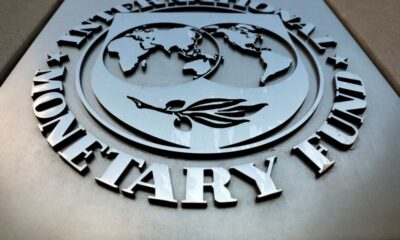
 VenturesNow2 days ago
VenturesNow2 days agoEgyptian loan package size is appropriate, says IMF
-

 Uncategorized2 days ago
Uncategorized2 days agoEthiopian PM Abiy Ahmed meets Putin at BRICS, eyes stronger ties
-

 VenturesNow23 hours ago
VenturesNow23 hours agoMali claims Barrick Gold violated deal as miner disputes


